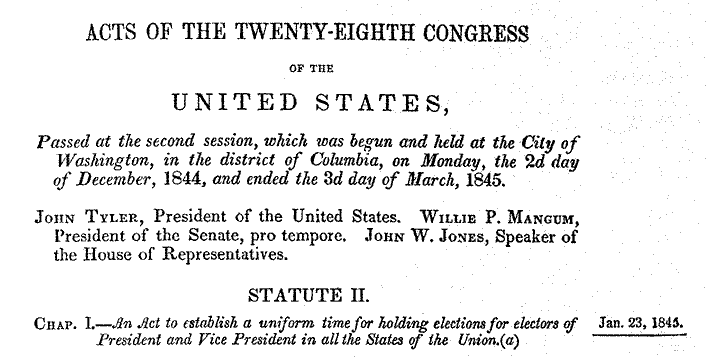1/7 #WisconsinPrimary polls are open today despite #coronavirus fears. Republicans rejected a delay that would allow more time for voting by mail. Expanding opportunities to vote is controversial today, but the way we vote has been evolving since the nation’s founding. 

2/7 Congress set a single day for presidential voting in 1845. Earlier, states set election days, spanning a 34-day period. Tuesday was chosen to accommodate farmers traveling from remote areas who worshipped on Sunday; November because the harvest was completed. 

3/7 Absentee voting has been allowed in wartime. Civil War soldiers mailed ballots home or cast ballots from the battlefield. During WW2, troops overseas were permitted to vote absentee. Presidents of those eras, Lincoln and FDR, hoped to win the soldier vote. 

4/7 In 1978, California pioneered the “no excuse” absentee ballot. In 1996, Oregon became the 1st state to conduct a federal election entirely by mail. 

5/7 After Florida’s “hanging chad” debacle sent the 2000 presidential race decision to the Supreme Court, more states adopted early voting to ease long lines and pressure on election officials. 

6/7 Tens of millions of voters have voted early in recent elections. There’s no solid evidence that early voting increases turnout in national elections or that it benefits one party over the other, as President Trump and others in the GOP appear to believe. 

7/7 Today, all states have some form of voting by mail, and the custom of gathering on a single day to cast a ballot, whether in the shadow of war or a pandemic, continues to evolve.
• • •
Missing some Tweet in this thread? You can try to
force a refresh












